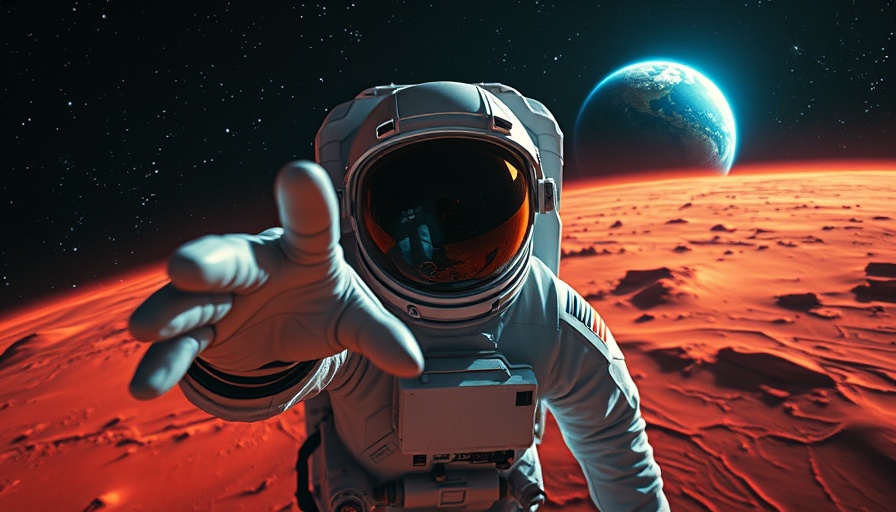
The Future of Space Health: AI Meets Astronaut Needs
In a groundbreaking collaboration between NASA and Google, a new artificial intelligence (AI) tool is being developed to assist astronauts in managing their health during long space missions. These missions, which may reach extraordinary distances to the Moon or Mars, present unique challenges in medical care due to communication delays that can stretch up to 22 minutes one-way. The "Crew Medical Officer Digital Assistant" aims to provide timely medical support to astronauts, potentially preventing health crises in the vastness of space.
Understanding Communication Gaps in Space Missions
Space travel isn't just about rockets and fuel; it’s also about managing the human experience. While astronauts currently operating on missions to the International Space Station (ISS) enjoy relatively robust communication with ground support, future missions will face significant delays. According to NASA, the communication lag can reach up to 22 minutes for missions aiming at Mars. In critical health situations, this delay could be detrimental, necessitating a smart solution that the AI health assistant aims to provide.
Why an AI Doctor is Essential for Long-Distance Missions
With the potential risks of delayed communication, having an AI-powered medical assistant could significantly enhance the safety of crew members. David Cruley from Google Cloud explained that during emergencies, every moment counts. If the human medical officer is incapacitated, the AI tool could step in to diagnose and advise the remaining crew until help can arrive. This capability can mean the difference between life and death—especially when navigating the semi-uncharted territories far from Earth.
How the AI is Being Tested
Currently, NASA and Google are in the early testing phases of the AI digital assistant, with simulated medical scenarios assessed by medical professionals and an astronaut. This rigor ensures the tool is prepared for the unpredictable and often chaotic nature of space travel. Medical experts are involved at every stage to assess its accuracy, improving the assistant's reliability and performance in critical situations.
Broadening Horizons: Potential Beyond Space
The implications of this technology extend beyond space missions. As Cruley pointed out, this AI assistant hold the potential for broader applications on Earth, particularly in remote areas with limited access to healthcare. Businesses focused on technology could find immense value in these developments, as they pave the way for AI-driven solutions in medical emergencies—a topic gaining traction in the fintech and tech trends landscape.
Take Action: Embrace AI Innovations in Your Business
As AI technology becomes increasingly sophisticated, consider how such innovations can be integrated into your business strategy. Whether improving customer service through AI tools or leveraging AI for medical solutions, staying ahead of trends can provide a competitive advantage that drives growth. Exploring up-and-coming technologies may not only enhance your operational infrastructure but also enable your organization to scale effectively in the coming years.
 Add Row
Add Row  Add
Add 



Write A Comment